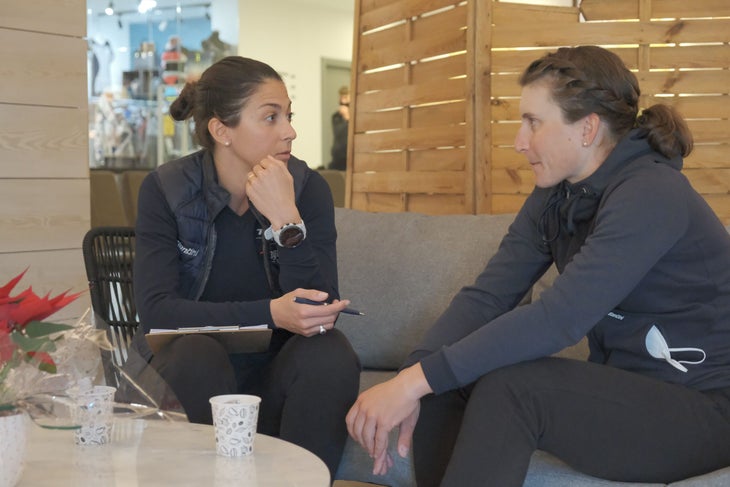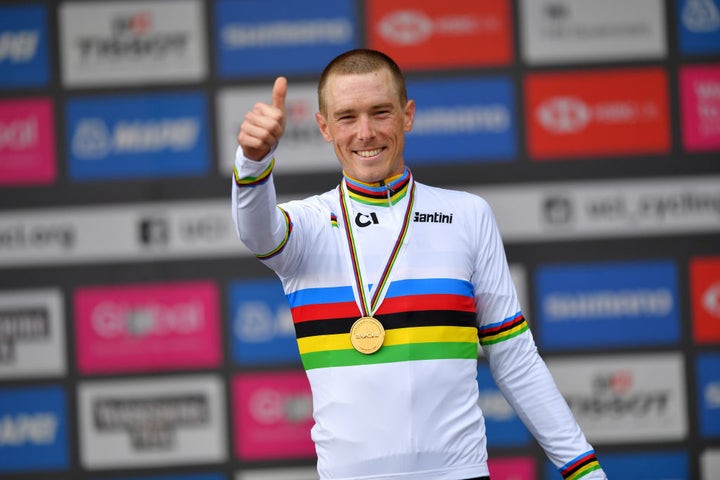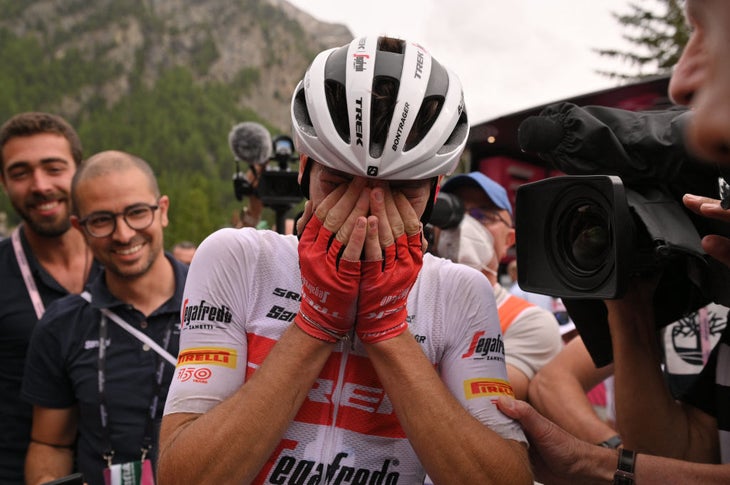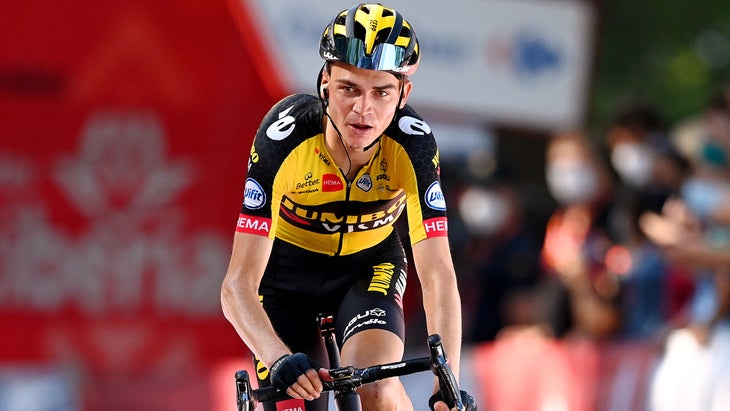Pleasing sponsors, preening social media feeds, staying competitive in an exponentially improving peloton.
The demands of modern pro cycling add extra layers of tension to a sport already determined by 24/7 sacrifice and suffering.
That’s why top-tier teams are bringing psychologists into their fleet of staff.
“Research and studies show athletes have a higher percentage of mental disease, depression, anxiety, diseases, eating disorders and the compensatory binge eating, addictions than others,” Trek-Segafredo psychologist Dr. Elisabetta Borgia told VeloNews.
“And now the level is getting higher, the stress is getting higher, and burnout is always around the corner. Racing bikes is about so much more than being physically strong now.”
Also read:
- Tom Dumoulin, the butterfly that got away
- What do pro cyclists do when they can’t ride? Inside the WorldTour recovery room
Trek-Segafredo and Ineos Grenadiers are among the WorldTour crews that have bought psychologists in-house to keep riders as mentally fit as they are physically prime.

Borgia is a dialectical behavioral therapist working with both the men’s and women’s teams. She also has extensive experience working with the Italian national team.
Her role has moved from the fringe to the center of her teams’ orbits as ever increasing pressure leaves riders more tightly wound.
“The reason my role is more and more present, and I think needed in every team, is because of how the sport is growing. Now, if you’re a pro, you have to look at so many details. All those details need to be positive, otherwise the rider starts to doubt. It’s become really difficult for the riders to keep everything in one piece,” she said.
Only this week 24-year-old Pernille Mathiesen retired due to mental health struggles. Tom Dumoulin announced an early retirement after struggling with pressure and burnout earlier this month.
Career breaks or early retirement have become common for riders that just got pro life rolling. The 21-year-old Theo Nonnez and then-24-year-old Lennard Kamna both stepped away recently.
“Riders have to speak with sponsors and play that game. They have to look at their position, they have to work on their time trial bike. They have to maintain core stability, hydration, bodyweight,” Borgia said.
“There’s so much integration and precision. There are so many variables that finally if you are not well balanced, you crack.”
‘You need the legs to win, but it’s not enough’

The role of psychologists in top-level cycling is nothing new.
Team Sky and British Cycling famously worked with Dr. Steve Peters in mastering their inner champ.
Rohan Dennis was active in thanking his psychologist Dr. David Spindler for getting him back on track for his worlds time trial triumph in Harrogate.
“You need to be fit, you need the legs to win, but it’s not enough. You can be the strongest physically but if something’s wrong inside, it doesn’t work” Borgia said.
Borgia, 34, helps riders day-in-day-out with issues ranging from self-confidence and performance anxiety to more “common” concerns around families or relationships.
“Physical preparation is essential but there’s more to it,” she said. “The mental part is really important now. From a positive point of view, I work on the cycling things like goal setting, but also I have to speak to them about mental health. There’s a lot of stress in racing.”
The perfectionistic, relentless mindset that separates race-winners from pack-fillers can leave riders prone to a range of ailments.
“I worked for 10 years in a rehab clinic as a clinical psychologist for addicted people, drugs, alcohol, and gambling. And I can tell you, I can see many, many things that are really common with riders,” Borgia said. “Top riders are high sensation seeker personalities. Many times, that need can be a problem, especially when they retire and they start needing something else.”
Social media squeezes pressure

Social media is almost a must for any high-flying modern rider. An active feed is encouraged by many teams.
Preened and regularly updated Instagram, Twitter and TikTok profiles thank teammates and pimp up life in the peloton. They also add another layer of anxiety.
“Social media is a big issue today. Riders are never turned off. They are constantly activated by so many elements. All pro sports is like that now. It’s way harder than it was 10 years ago when a good athlete had to win and that was enough,” Borgia said.
“There’s races all around the world, the level is higher, and now you need to be an influencer. You have to make posts of your bikes, show life is good, and also when it’s off-season you have to do something.”
Also read: Jumbo-Visma rider Lennard Hofstede talks quitting social media
The pressure extends beyond the personal as “Stravanoia” takes grip on training schedules.
“Riders are on a recovery day and all they have to do is do their training and follow the plan. Then they turn on their phone and see their competitors ride 200km and got a KOM. Then they feel guilt,” Borgia said.
Mechanics, masseuses, medics, nutritionists … and psychologists

How soon might we see psychologists in every pro team?
Could be pretty soon, as riders sure see the benefit.
“We don’t have a psychologist hired by the team, but I think on a case-by-case basis we have someone the team can refer us to talk to,” Jumbo-Visma rider Sepp Kuss said. “I think it would be a good idea to have someone that would be readily available to talk with.”
Masseuses and nutritionists were once seen as a wild and wacky addition to a team bubble. A decade later, they’re a must-have for outfits of all budgets and aspirations.
Staffers like Borgia could be next to make the step to the mainstream.
“We’re in an important place in pro cycling and the culture. When I started 10 years ago, lot of cyclists didn’t want to show they go to a psychologist because they would feel like they’re mad,” she said.
“Bringing psychologists into teams is a big step for sure. I think many riders in a WorldTour team have their own psychologist at home. It’s not compulsory but it’s really important – and I think it’s getting even more important.”
